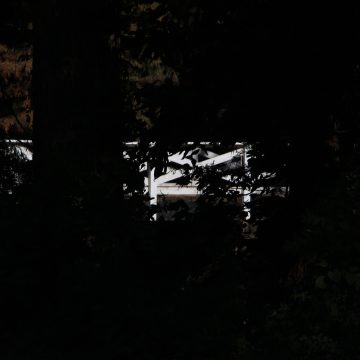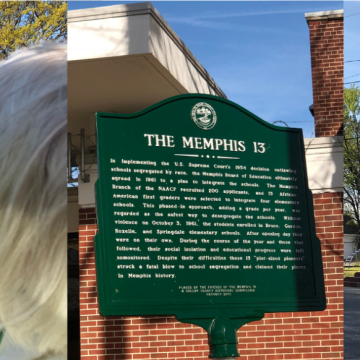 In August, I had the chance to meet Idaho farmer Lori Anne Lau at the AgChat Foundation’s first training conference (she’s another of the farmers I “met” through efforts online). The sessions kept us fairly busy and I soon realized I didn’t have much of a chance to visit with her.
In August, I had the chance to meet Idaho farmer Lori Anne Lau at the AgChat Foundation’s first training conference (she’s another of the farmers I “met” through efforts online). The sessions kept us fairly busy and I soon realized I didn’t have much of a chance to visit with her.
We traded a couple of messages and I asked if she’d be willing to work with me on a guest post. What follows are some of the questions I asked (in italics) followed by her comments.
Tell me about being a farmer who does farmers’ markets? What it takes for you to do it?
Lori Anne: For 6 months of the year we take our grass-fed, no hormone implants and no antibiotic, beef and lamb to farmers markets in our region. My husband and I attend two markets each weekend which are between 1.5 and 3 hrs from our home town in the mountains of SE Idaho. We rotate between the markets in Idaho Falls, ID, and Logan and Salt Lake city, UT.
We spend good chunks of 3 days getting ready for each Saturday. Thursday is spent going to the butcher to restock from our storage area (1.25 hrs away), Friday sees us packing up our orders, and the coolers of meat for those that don’t preorder, and finally loading all the coolers, tables, canopies, and display materials into the van and truck. And Saturday is spent getting to, setting up, attending the 4 and 5 hr long farmers markets, driving home, and unpacking anything we haven’t sold.
Throughout the week we are sending out newsletters, answering questions/inquiries, sending out reminder emails and order totals, as well as all the bookwork involved, not to mention all the work of growing the grass and hay it takes to feed our animals and to keep them healthy and safe. Our animals graze our pastures during the non-snowy months, and we deliver hay for them to eat, in our pastures, during the months the pastures are covered with snow.
The other 6 months (November to April) we make monthly deliveries to each of the 5 communities we serve. We meet customers in a central location in each community, bringing the items they have requested, and a bit of meat for those that don’t preorder, as well. This helps us keep our cash flow up, and keeps our customers’ freezers stocked all winter.
How consistent is business from week to week? What products do you sell?
Lori Anne: After six years in business we can somewhat predict the total volume of meat we will sell thru the seasons, but which items sell any given week can be quite variable. Steaks and chops are often more popular close to the summer holidays, and roasts and stew meat pick up as the weather cools in the fall. It is really hard to know if the customers are going to want lots of steaks, or roasts, ground meat or sausages any given week. We have found that taking orders for items we are out of one Saturday, for delivery the next, or via email before the market helps us keep our steady customers happy and also helps guide us as to what cuts may be popular that week.
We sell individual cuts of beef and lamb (steaks, roasts, ground meat etc) as well as quarter (split half), half and whole beef, and bundles of beef. We also sell whole and half lambs in the fall. We also have artisan style sausages made with our meat. In the last few years we’ve added yarns and roving made from our ewes’ fleeces (wool) and in 2010 we added hand dyed wool yarns (our daughter and I, and any friends we can round up have fun playing with color every few months). And for the first time I’m selling a few hand knit items, as well. (A few photos from the Lau Farm’s Facebook page are below in a slide show. Check out the page, “like it” and look at more of the great photos they have posted!)
What are some of the things you think set you apart for customers?
Lori Anne: A large percentage of our customers want to know where their meat is coming from, who raised it, and how the animals were cared for, and even about how they were harvested. Our customers know that the majority of the meat we sell is from animals that we have owned from conception to consumption, and the remaining animals are coming from our friends’ farms. Our display materials, our newsletter, website and Facebook page help allow them to know more about the conditions under which the animals are raised, and the family that is caring for them. Besides educating our customers about what goes on behind the scenes to produce their meat we think that our emails and Facebook page help to create the connectivity to their food that many Americans long for. This sense of connection also seems to create some loyalty to our farm. We also try to provide excellent service, and of course we try to produce the most flavorful, tender meat we possibly can.
What are some of the concerns you have?
Lori Anne: We were not the pioneers in the grass-fed business in our area, but we were one of the “early adopters” in the region. We are now seeing a huge wave of people getting into the business-they see the success of businesses like ours and want to improve their own economics. Some of these newcomers have much larger operations, and can therefore afford to take smaller margins on their large volume to get to the same amount of dollars to support their families. In short, some of them are able to undercut our prices. Many of them have enough volume to seriously pursue wholesale marketing to restaurants and stores. This gives them a larger presence in the public’s mind, and perhaps added credibility.
A second challenge we face is that we do not have any irrigated land (we have some sub-irrigated meadows) so we are completely dependent on the moisture we get naturally. Many of the other operations have irrigated land and so have more reliable pasture growth, and are less affected by low moisture years. In dry years we have to purchase hay to supplement what we can grow ourselves which can be hard on the bottom line.
We try to remember that these “competitors” are not just competing with us for the same customers, but are instead increasing the public’s awareness of the option of buying local, grass-fed meat which adds to the customer base for all of us. Sometimes it is very hard to remember this.
What do you think about the diversity of US agriculture?
Lori Anne: I think the diversity of agriculture in our country is one of our greatest strengths. I think it is wonderful that each farm family or operation is able to make the choices that work best for their own situation. Many people take “unconventional” routes because the economics of “conventional” farming can be quite harsh, while others make their choices for philosophical reasons. We were faced with the situation of being the first generation in 125 plus years that could not support a family on the farm, and we were unwilling to subsidize our farm with an off-farm income. Being at 6,000 feet, with a frost-free period of a month or so, the only crop we can reliably produce is grass and hay. We decided to turn that grass and hay into grass-fed beef and lamb because that was the most reliable way to produce the kind of income we needed to support our family of four. Other farmers faced with the same situation are making different choices, and we applaud them for doing what works for their families and situations.
I am a great proponent of locally grown food, in part because it tends to improve the economic prospects of those producing the food. But I also gladly acknowledge that America has the cheapest and safest food supply in the world, largely because we have figured out how to grow our food where it is the cheapest and easiest to grow it. I believe by having large, medium and small scale producers and food processors we are creating a degree of redundancy in our food system. Some would argue that this redundancy doesn’t make economic sense. I argue that we are talking about our most critical industry-without a food supply every other industry in our nation would come to a screeching halt and so I see having redundancy as a form of safety net.
With our food being produced at a variety of scales, in a variety of ways, and in a variety of locations, we reduce the chances that any one weather or biological challenge (disease, pest, etc) will severely damage our ability to feed ourselves. So as I said before, the diversity of agriculture in this nation is one of its greatest assets, because it provides us a level of protection against a catastrophic decline in the food supply which would greatly affect our economy and our society. The diversity of American agriculture is also an indicator of the amount of freedom which our producers still have-they can chose what crops to grow, which variety to grow, how many acres or head to raise, and what farming practices make the most sense for their individual operations.
After reading about all the things Lori Anne and her husband do as they prep for their local farmers markets, I have an increased appreciation for the folks I buy from at farmers’ markets here in Memphis (I’ve blogged about some previously). I hope some of you share that. If you would like to learn more about Lau Family Farm, check out their website or Facebook page. And I would like to finally ask that you take a minute to provide the farmers & ranchers, butchers, processors, etc your thanks.
[slideshow]



Interesting. While in Santa Fe this weekend, we attempted to visit the Farmers’ Market, but there was not a parking spot within five blocks. Not knowing the territory real well, we did not make it. Maybe next time.
Thanks for this opportunity to tell our story, Janice!
I love the credit Lori Anne gives to all family farmers, whether they use her family’s hands-on method or go another route. Her point, that diversity will be our nation’s saving grace, is a VERY important one, particularly in these days of mass farming, corporate mentality. There’s more to our meat than money! Thanks, JP and Lori Anne!
I totally agree Jen! Lori Anne ROCKS as do all farmers!
that was a wonderful heart warning story
Thanks for the comment. I agree Lori Anne has a great story.
I am a fiber artist and vendor at farmers markets as well, so I totally appreciate the work involved. Your yarn is beautiful!
Julie
Glad you found your way over! And I agree, Lori Anne does great work.
Great post! We have a wonderful Farmer’s Market here, and we sold there for a little while. It’s a ton of work!
~Kim
Thanks! Farmers and folks who do handicrafts rock so Lori Anne rocks doubly!